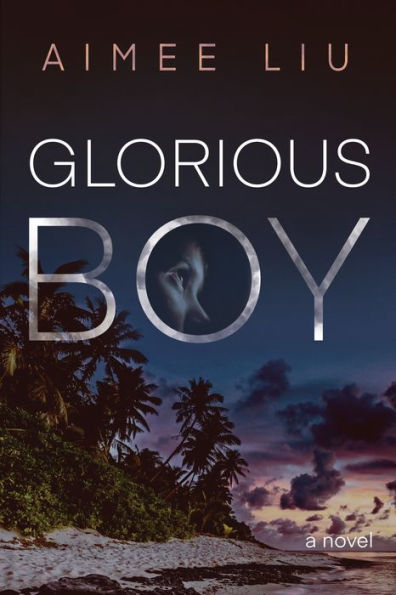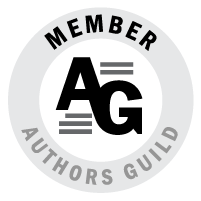For Writers Especially: How to Manage Research Rapture

I once heard the late novelist Oakley Hall describe “research rapture” as an occupational hazard of fiction writing — one that too often consumes both writers and their work. I knew precisely what he meant. It’s easy for me to get so enthralled in the hunt for details about, say, midget submarines in WWII, that I fail to notice how much of the information I’m collecting serves absolutely no purpose in my novel.
Research rapture can cost you time and send you off on complicated tangents that will muck up your story and leave you stranded in a swamp of fascinating but irrelevant details. How to negotiate that edge between enough background information… and infinity? Here are 6 tips that have helped me maintain a productive balance while writing my historical novels.
1. Write not “what you know” but what you need to know
If you love to research, that hackneyed motto, “Write what you know,” can be lethal. You’ll never start writing your book if you wait to “know” everything about it.
The truth is, nobody knows everything about their subject. That applies even if you’re writing a memoir. You’ll inevitably have blind spots about the people around you, the historical context, not to mention your own true motives. Some of these blind spots can be filled in with research, but many can only be addressed through the process of thinking and connecting the dots as you write.
Great literature is not a regurgitation of knowledge but a deeply felt quest for understanding. It’s the quest that gives both story and prose their energy. That’s why, for better and for worse, my way through has always been to conduct most of my research on a need-to-know basis, starting with the most emotionally salient questions as they arise.
2. Research as you write
It’s important to lay a foundation, of course. Before starting to write, you need to know the parameters of your physical, social, and emotional territory. Map the geographic and logistical settings. Picture the characters. Above all, feel the conflict that is generating your story’s emotional heat. But understand that knowing what you’re writing about is not the same as mastering every single detail beforehand.
I only dig deep into the particulars of history, flora, fauna, customs, etc. when my plot and characters demand specific details. In my novel Glorious Boy, my protagonists included an aspiring anthropologist and a medicinal botanist, and the setting, India’s remote Andaman Islands, was as unfamiliar to them as it would be to most of my readers. So I needed to research the tribes and orchids, landscape and customs that they would be encountering as they made their way through the story. Researching these particulars as the novel unfolded helped to keep the sense of discovery as fresh for me as it would have been for them.
3. Seek authenticity, not expertise
In many ways, I will admit, this approach is unsatisfying. Whether investigating indigenous tribes in India, or the San Francisco Earthquake, or Cold War intrigues in Xinjiang, I’ve never felt that I qualified as a true expert in my subjects. I learned a lot, but never all the relevant terms , historical figures, or place names. Even when copy editing, I’d often have to check and double-check these particulars. And helpful friends were always recommending more essays, articles, videos, interviews, books that I might find helpful.
But here’s the thing: Creative writing doesn’t require the same encyclopedic knowledge of facts that journalism does. Fiction and creative nonfiction instead require an authentic sense of the truth about characters in a particular place and time. What would they do? How would they feel? What obstacles would they face? Authenticity demands that you write with a deep understanding and empathy for your characters and their circumstances, but that doesn’t mean that you need to know the manufacturer, size, and weight of every utensil in their kitchen. A few will do.
On the other hand, your research does need to convince you — and by extension, your readers — that your story and character choices are plausible. When I was writing my novel Flash House, I collected a vast array of sources about China in the 1940s, including books by Teddy White and Barbara Tuchman and State Department briefing sheets from the entire Cold War. I’d have loved to spend years reading every word of them and more. But I didn’t need to read every word for those sources to serve their purpose, which was to persuade me that Americans and Brits were embroiled in political intrigue in Eastern China in 1949, and that unwitting civilians like my characters could have been collateral damage.
Beyond that, I knew that my readers would likely know even less than I did about the Karakoram Trail, which my characters followed in Flash House. So I needed to gather as many memorable sensory details as possible to show them the glacial plains, the sheer mountainous chasms and rushing brooks, the icy shafts of wind blowing through the Karakoram passes, and the multi-ethnic characters who live in these desolate reaches. I needed to know enough, in short, to make this vicarious journey myself. Only then could I convincingly write about it.
4. Research through experience
When Arthur Golden published his mega-bestseller Memoirs of a Geisha back in 1997, almost every article and review about the book mentioned that he had dressed and made himself up as a geisha in order to more fully inhabit his character’s reality. He also based his novel, in part, on a former geisha he’d interviewed extensively. That’s experiential research, and it’s worth far more than the many books he doubtless read.
Personal experience gives you the sensory details you need to make your story come alive. It’s also more memorable than just about anything you can read. So, take a page from Arthur Golden and interview people who’ve lived through situations like your story. Meet their pets. Taste their cooking. Look through their scrapbooks and journals. Try on their clothes.
Even if you’re writing a historical novel that takes place centuries ago, you can visit museums to see what furnishings and jewelry and clothing in your period was like. You can travel to the locations where your story takes place, walk the cobblestone streets, explore the ancient architecture, study the local cuisine, customs, faces, and landmarks.
I could never have written Glorious Boy if I hadn’t traveled to the Andaman capital of Port Blair and inhaled the heat and humidity, visited the jail that stood at the center of this former penal colony, and seen firsthand the immensity and density of the rain forest that covers the Andaman Islands. I also never would have discovered the local history of World War II that wound up framing my novel. History lilke this:
5. Choose an author’s note over footnotes
There will always be self-proclaimed experts waiting to swoop in and correct your factual errors. That’s what your author’s note is for. If you admit in your author’s note that you took liberties with the dates of events, fictionalized historical figures, and employed inventions in your story before they were invented “in real life,” you’ll undercut your critics before they get started. If you admit to making things up, no one can accuse you of getting them wrong.
That won’t necessarily stop them. Once, at a reading for Flash House, I was accosted by a woman who had known the American who actually served as consul in Xinjiang in 1949, and she was livid about the character who held that position in my novel. I told her I was sorry that she felt I’d slighted her friend, but the character was never meant to resemble him.
And here you have the ultimate distinction between authenticity and fact. My book was fiction — not reality but alternative reality. It required emotional validity and the feeling of truth, but it was not a biographical portrait. If it had been, I’d have needed to footnote my references. Literature rarely includes footnotes. But it does routinely include the disclaimer:
This book is a work of fiction. Names, characters, places, and incidents are the product of the author’s imagination or are used fictitiously. Any resemblance to actual events, locales, or persons, living or dead, is coincidental.
Make sure that disclaimer appears in every novel you ever publish.
6. Trust your ultimate resource
The core of your writing needs to be personal, immediate, and true. That’s why no amount of research can supplant your ultimate writing resource: your own memories. These include your earliest sense memories of taste and touch, the smells of night and the sounds of rain, the dreams that woke you when you were a child. The task of the fiction writer is to let research stretch its arms to hold and support such true memories, but never to replace them.
Research rapture, however intense, can never substitute for live faces, live travel, living smells and sounds, and emotions truly felt. Yes, your core concept and plot device may be fabulous inventions, but the writer who created them is real. And that reality contains the ultimate truth that you must bring to the page through your story. Truth like this:
In creative writing, every character, every deed, every consequence is by definition a refraction of the author’s insight. There is no danger in knowing too much, but there is a very real danger in overloading insight with too much information.
The distinction here is crucial, because knowledge naturally evokes and underscores truth, deepening the words on the page. Superfluous facts, on the other hand, tend to rise to the top like soap bubbles. They pile up, obvious, illusory, and thick, perilously obscuring the substance of the story.
The trick, then, is to use your research to help you dive into the emotional depths of your story without kicking up too much surface froth. Find out enough to enrich, to keep you curious and a little unsatisfied but never overwhelmed. Because ultimately, the satisfaction of your work needs to come from the words you write, not the ones you read.



